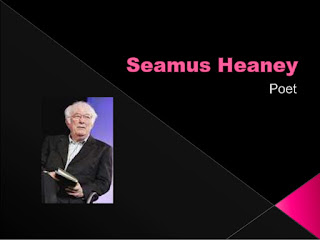"The Redress of Poetry" is a prose work. Prose work can be analyzed but not summarized.
👉👉Here it goes.
👉👉Mr. Heaney's poems have all along concerned themselves with something else. The fractious, often deadly politics of his homeland, because they are some of the circumstances of his daily life, flicker through his poems. But his ambitions have always been more private, and his gift essentially lyric. A place, he's said from the start, whether a farm in Derry or an alley in Dublin, ''symbolizes a personal drama before it epitomizes a communal situation.'' Throughout his career, he has concerned himself less with any commentary on social conditions than with an analysis of the heart -- its longings, its hollows and, yes, its violence.
👉👉A poet's political views will more likely turn up in his prose, but even here Mr. Heaney is wary. That very wariness was the subject of a series of public lectures he gave between 1989 and 1994 as the Professor of Poetry at Oxford. Ten of those fifteen lectures have now been gathered in ''The Redress of Poetry,'' and the result is a meditation on the uses of art and power, a fresh and astute defense of poetry against any attempt to reduce it to a relevant or useful commodity. Poets from Sir Philip Sidney to Percy Bysshe Shelley to Wallace Stevens have all written impassioned, stirring defenses of their art. In its more reasoned, subtle and amiable way, Mr. Heaney's new book takes an honored place with theirs.
👉👉This book follows the pattern of his two earlier collections of essays, ''Preoccupations'' (1980) and ''The Government of the Tongue'' (1989). There, as here, he may brood on history or discuss critical theory, but he is uncomfortable doing so. As soon as he advances a general idea, he retreats into the specifics of texts, texts drawn from a whole range of English, Irish and American poems. Confident that true poetry stretches a tripwire across the path of the ideologue, he is never a polemicist, always the scrupulous, admiring reader.
👉👉Poetry is not printout, never merely a fading duplicate of experience. Instead, the book's title essay insists, a poem is the imagined alternative: ''If our given experience is a labyrinth, its impassability can still be countered by the poet's imagining some equivalent of the labyrinth and presenting himself and us with a vivid experience of it.'' And reading, then, is a fable about crossing from one dimension of reality to another. Poetry's counterreality, furthermore, is meant to complicate experience rather than simplify it, to distort in order to reveal. Grotesque or ecstatic, its excess is meant to balance ''life's inadequacies, desolations and atrocities'' without being expected to assume ethical obligations or political motives. Mr. Heaney's first principle is pleasure. After all, ''no honest reader of poems . . . would see moral improvement or, for that matter, political education, as the end and purpose of his or her absorption in a poetic text.'' The pleasure we take in poems -- even our guilty pleasure in poems written by a talented ''oppressor'' -- comes from their sensuous bravura, from their ability to include what Rilke once called ''the side of life that is turned away from us,'' and finally from their instinct to transform the circumstances and conditions of life.
👉👉An exemplary reading of Christopher Marlowe's ''Hero and Leander,'' which was written in the late 1580's, makes his point convincingly. Mr. Heaney first read the poem as a student at Queen's University in Belfast, and even then could see it as an example of nascent English imperialism: ''This English pentameter marched in step with the invading English armies of the late Tudor period.'' However he may have winced at the implication, he thrilled to the lines, and he began to see how Marlowe's mind worked: ''a mind that knows both the penalties of life and its invitations, one closer to the spirit of carnival than to the shock tactics of agitprop.'' Marlowe's gorgeous poem of doomed love is, at its grandest, a parable about the motion of the soul, a motion toward liberation and beatitude but ''countered by an implicit acknowledgment of repression and constraint.'' Its artistic virtuosity, in other words, is at once undercut and heightened by its psychological realism.
👉👉Marxists, feminists, anyone who prefers to read a poem as a set of discourses -- in essay after essay he entertains their views in order to dismiss them. The other poets he takes up, from John Clare to Hugh MacDiarmid, were all early favorites who became abiding loyalties. As if to demonstrate the fact that this century's literary energies and innovations all occurred a long way from Oxford, his preferences are largely Irish, Scottish, Welsh or American, as well as homosexuals, madmen and women. He is justly hard on some. Dylan Thomas's rhapsodic obscurities, for instance, when first encountered by the young Mr. Heaney, seemed to promise a prelapsarian harmony; the older, wiser poet now finds in Thomas an unenlightened music: ''He emphasized unduly the romantic, positive side of the story and overrated the lyre's ability to stay or reverse the course of nature.'' And Oscar Wilde, the airy paradoxes of whose plays upended the conventional social pieties, grew unimportantly earnest in ''The Ballad of Reading Gaol'' when he appealed sentimentally to his reader's conscience.
👉👉The vital tensions Mr. Heaney searches out are, of course, implicit in any good poem, wherever the affirmative impulses of form meet the negative evidence of subject matter. But only a master can make those tensions radiant. In William Butler Yeats's crystalline heroics or in Elizabeth Bishop's ''immense discretion and discreet immensity,'' what is at work is ''the mind's capacity to conceive a new plane of regard for itself, a new scope for its own activity.'' Both poets command imaginations that are ''unembittered but still unappeased.'' Both help to restore the mysterious otherness of the world.











No comments:
Post a Comment